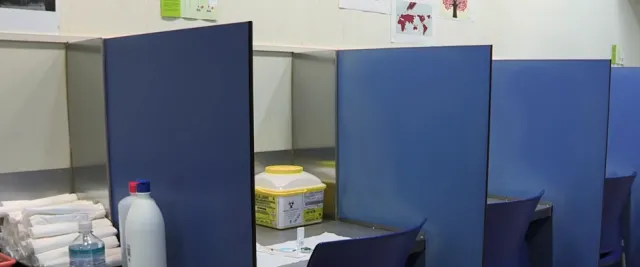The emergence of new drug trafficking routes, the reduced availability of drug-related health services and the adaptation of drug treatment protocols during the COVID-19 pandemic are among the findings highlighted today in a new EMCDDA report: Impact of COVID-19 on drug markets, drug use, drug-related harms and responses in south European Neighbourhood Policy countries.
The publication is released in the framework of the EMCDDA EU4Monitoring Drugs project, funded by the EU and launched in 2019. The project paves the way for the agency to cooperate and exchange data more readily with the European Neighbourhood Policy (ENP) partner countries. A similar report relating to the eastern ENP region was released in September.
Today’s report presents the key results of an EMCDDA trendspotter study, prepared in consultation with some 20 experts from seven southern ENP countries (1). A summary of the report in English is available in Arabic, Hebrew and French. The south ENP region, which comprises diverse countries in North Africa and the Middle East, is an important nexus for drug smuggling to, and from, the EU, as well as a well-known hub for the production of cannabis and amphetamine-containing substances.
The report highlights the following changes in the early stages of the COVID-19 pandemic across the southern ENP region:
- Drug markets — Signs of supply chain disruption were seen in a reduction in the volume and number of seizures at borders and in increases in retail and wholesale level prices for certain types of drugs in some countries. In terms of drug trafficking across North Africa and the Middle East, the most noticeable developments were linked to the emergence of new trafficking routes. Distribution appeared mostly unaffected, with continued street-level drug dealing. But there were signs of an increase in the use of mobile applications for ordering drugs, in some countries, and also in darknet activity in Israel, Jordan and Palestine.
- Drug use and drug-related harms — Data on drug use remain scarce in the region but available information suggest that the availability of some well-established illicit drugs decreased, which is thought to have led to a reduction in their use. In some contexts, this appears to have resulted in a greater use of substitutes (e.g. home-made substances, adulterated alcohol, new psychoactive substances, etc.), sometimes leading to harmful patterns of use (e.g. injecting). More generally, experts felt that the COVID-19 pandemic had further exacerbated long-standing economic and political challenges, which had the potential to lead to increased use of psychoactive substances and to higher levels of mental health morbidity.
- Drug services — Drug-related services, in some countries, reduced their offer in the early lockdown period by temporarily closing treatment facilities or restricting access for new clients. At the same time, where possible, drug treatment and outreach services adapted their policies and protocols to ensure the uninterrupted provision of services (e.g. take-home medicines and online or telephone consultations).
The report concludes that the experience gained during the pandemic confirmed that national authorities may need to further ensure that practitioners and law-enforcement officers remain adequately equipped and skilled to work both in a situation of health emergencies and in an environment where online communication and digital tools may start to dominate.
Continued cooperation, and investment in drug monitoring systems, will help the EU and partner countries identify important new developments and design appropriate strategies to address new challenges.


















